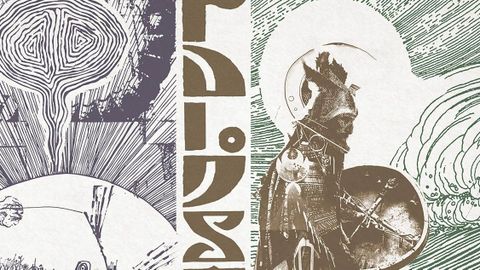Modern English folk music takes many forms. There’s the traditional kind, of course, the spare tales of endeavour and hardship that took root in the tap rooms of post-war Britain. Or the more exotic strain of blues and skiffle-related folk that bloomed in Soho cellars during the 60s. And the electrified variety of Fairport and their ilk, steeped in a mythic green isle of pagan queens and murderous shape-shifters.
But there’s also a heavier kind of folk, as mysterious and ancient as it is extant and modish, that draws from several corners of populist music culture. Led Zeppelin are perhaps the most obvious example, but just as striking were early 70s outriders like Trees and Comus, bands that took folk into progressive new directions. Wolf People belong on the same continuum. Theirs is a mutable form of psychedelicised folk that rocks like a metal band while also offering detours into more nebulous territory. This voyaging pluralism is becoming more evident with each successive release. Just as 2013’s Fain was a broader album than Steeple (their 2010 debut), Ruins is a different beast again.
Certainly, the opening triple salvo of Ninth Night, Rhine Sagas (with its exhortation to ‘tear it down’) and the very proggily-titled Night Witch are savage enough to rip a hole in your wall, powered by doomy fuzz guitars and head-nodding riffs, lightened by the odd gentler tone. They have, apparently, been listening to cult Scottish heavies Iron Claw of late, but there’s also a lot of Sabbath and The Groundhogs in here too. The album then settles into key track Kingfisher, a digressive epic that feels much more hallucinatory, driven by a cyclical guitar figure. The extended outro is nothing less than sublime, all blissful guitars and itchy bass.
Thematically, Ruins addresses a nation in crisis.
Thematically, Ruins addresses a nation in crisis, a Brexit- divided country run by careerists and blowhards. Singer-guitarist Jack Sharp has stopped short of calling it a concept album, though its defining thread is an imagined future where civilisation has auto-destructed and nature is free to reclaim the planet. Glass taps into this notion on a sonic level, melodies and time signatures erupting outwards in a riot of guitar-led foliage, as if trying to harness the might of nature itself.
Not Me Sir asks what happened to the promises we were made and serves as a call for communion as much as a straight refusal to take responsibility. Like most everything here, it’s imbued with a sense of hope. And taken as a whole, Ruins is a frequently spectacular declaration of intent from one of our most vital young bands.
Prog and Psych: A Kind of Love-In


